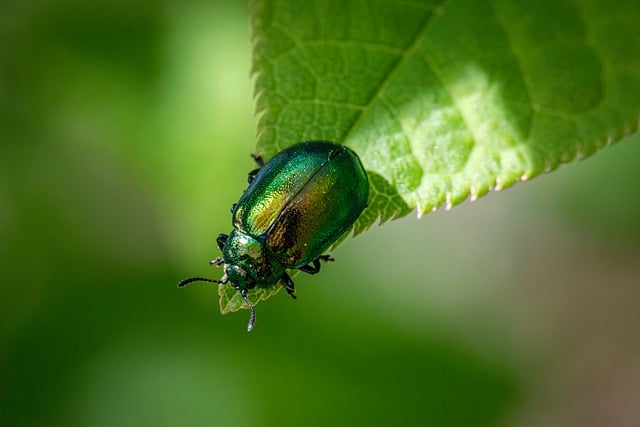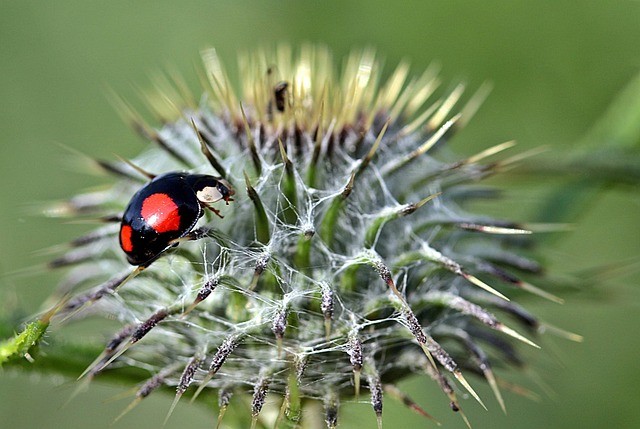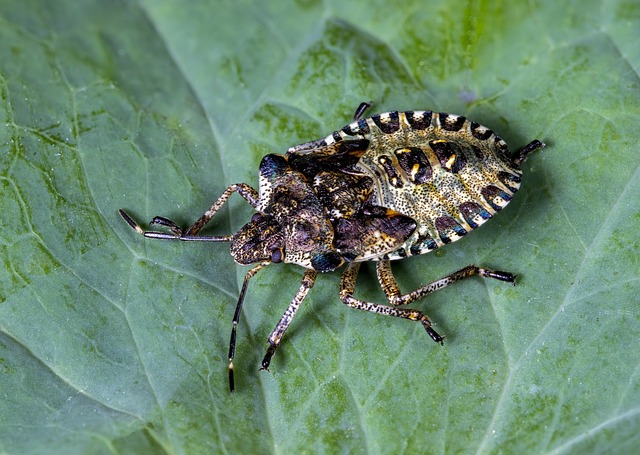Ant infestations in Castle Rock's vegetable gardens can be effectively managed through sustainable pest management practices. By understanding ant behavior, using natural repellents, maintaining good hygiene, and encouraging beneficial insects, gardeners can minimize the use of synthetic chemicals. Regular monitoring, early intervention, and advanced techniques like heat treatments disrupt ant trails, destroy nests, and prevent future invasions, fostering a healthier garden ecosystem and contributing to a greener environment.
Ant infestations can wreak havoc on vegetable gardens in Castle Rock, but there are effective, sustainable pest management solutions. Understanding the complex dynamics of ant colonies is key to successful control. This article explores both traditional and innovative strategies, focusing on a comprehensive approach that promotes a balance between your garden’s health and these persistent pests. From identifying ant behavior to implementing eco-friendly practices, learn how to protect your Castle Rock vegetable gardens naturally.
- Understanding Ant Infestations in Vegetable Gardens
- Sustainable Pest Management Practices for Castle Rock Gardens
- Effective Ant Control Solutions: A Comprehensive Approach
Understanding Ant Infestations in Vegetable Gardens

Ant infestations in vegetable gardens are a common concern for many homeowners in Castle Rock, especially during warmer months. These tiny invaders can quickly transform from a minor nuisance to a significant threat to your garden’s health and yield. Understanding their behavior is the first step towards implementing effective sustainable pest management strategies.
Ants are highly organized creatures, forming colonies with complex social structures. They are attracted to vegetables due to the presence of moisture, sweet substances, and potential food sources. Identifying ant trails leading to and within your garden can help pinpoint the source of the infestation. Sustainable solutions involve using natural repellents like citrus or neem oil, maintaining good garden hygiene by promptly cleaning up fallen fruits and debris, and ensuring proper drainage to minimize moisture-related attractions.
Sustainable Pest Management Practices for Castle Rock Gardens

In Castle Rock, sustainable pest management for vegetable gardens is a growing trend among eco-conscious homeowners and farmers. By adopting practices that minimize the use of synthetic chemicals, gardeners can maintain healthy plants while preserving local ecosystems. One effective approach is companion planting, where certain vegetables are grown together to deter pests naturally. For instance, marigolds and tomatoes can ward off aphids, while basil repels mosquitoes. This method not only reduces pest populations but also enhances the overall biodiversity of the garden.
Additionally, organic pesticides made from natural ingredients like neem oil or diatomaceous earth offer safe alternatives to conventional chemicals. These substances are non-toxic to humans and pets yet powerful against common pests. Regular monitoring and early intervention are key to successful sustainable pest management. Gardeners in Castle Rock can also encourage beneficial insects like ladybugs and lacewings, which feed on garden pests, further reducing the need for chemical interventions. By implementing these strategies, vegetable gardens in Castle Rock can thrive while contributing to a greener and healthier environment.
Effective Ant Control Solutions: A Comprehensive Approach

In the quest for effective ant control, especially in vegetable gardens, sustainable pest management is a game-changer for residents in Castle Rock. This approach focuses on long-term solutions that minimize environmental impact while eliminating ant infestations. One of the key strategies involves identifying and addressing the underlying causes that attract ants to your garden, such as food sources or structural vulnerabilities. Organic repellents and natural barriers can be implemented, utilizing ingredients like peppermint oil, diatomaceous earth, or neem oil, which are safe for vegetables and beneficial insects.
A comprehensive solution includes regular monitoring, prompt cleanup of spills and debris, and the use of trap crops to divert ants away from valuable plants. For more severe cases, professional services can employ advanced techniques like heat treatments or targeted applications of low-toxicity pesticides. The goal is to disrupt ant trails, destroy nests, and prevent future invasions, ensuring a healthy, thriving vegetable garden in Castle Rock.
In addressing ant infestations in vegetable gardens, adopting sustainable pest management practices is key, especially in ecologically conscious Castle Rock. By combining natural deterrents, habitat modification, and cultural techniques, homeowners can effectively control ants while minimizing the use of chemical pesticides. A comprehensive approach that integrates these strategies offers a lasting solution for healthy, bountiful vegetable gardens in Castle Rock, promoting both environmental stewardship and successful gardening practices.
